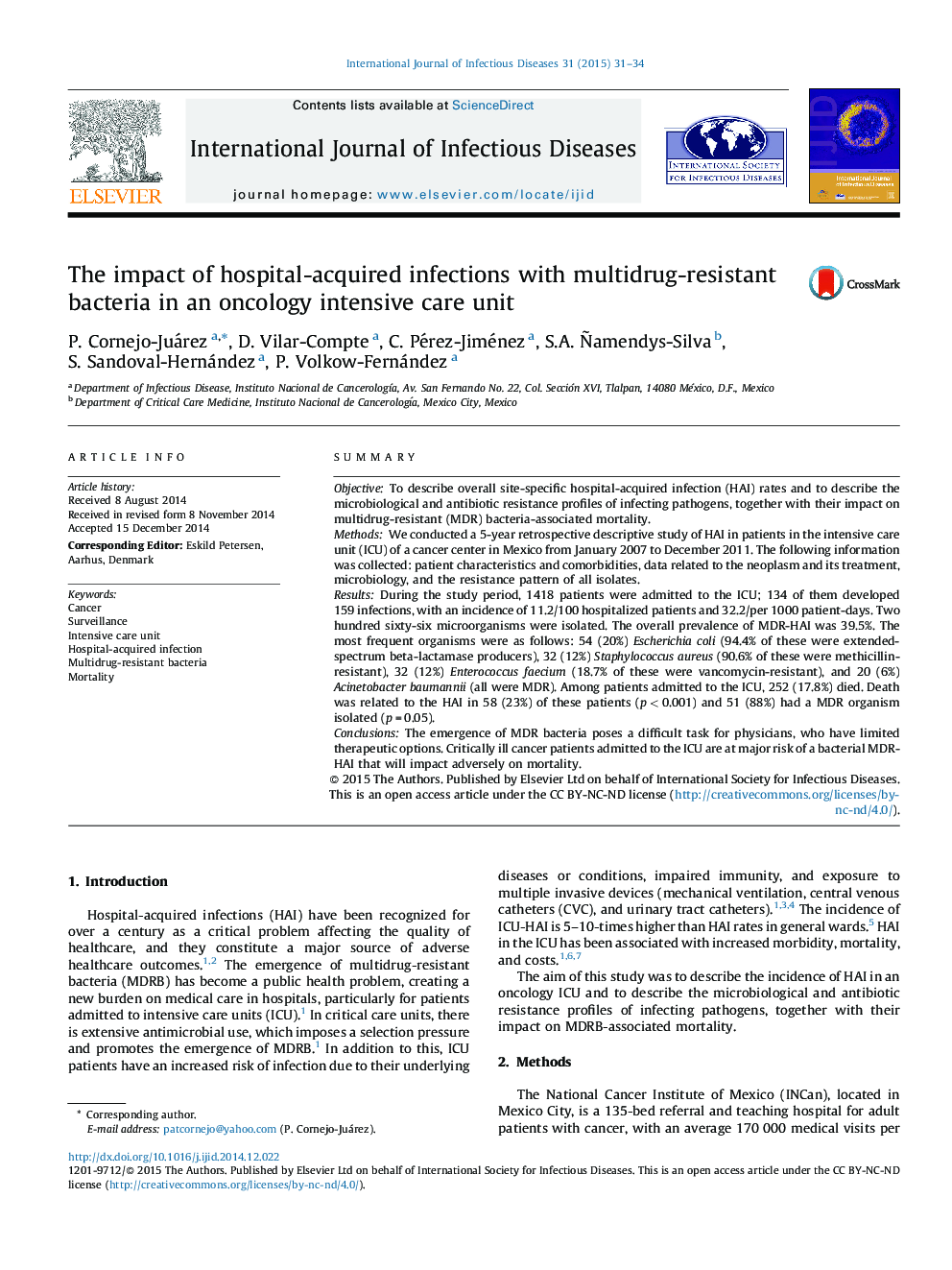| کد مقاله | کد نشریه | سال انتشار | مقاله انگلیسی | نسخه تمام متن |
|---|---|---|---|---|
| 3362232 | 1592064 | 2015 | 4 صفحه PDF | دانلود رایگان |
• Multidrug-resistant bacteria (MDR) are an increasing health concern worldwide.
• Hospital-acquired infections (HAI) are a major problem in critical care patients.
• Patients with cancer have an increased risk of HAI and higher associated mortality.
• MDR pathogens are frequently involved in this setting.
• Antimicrobial stewardship is a key factor for the prevention of HAI in the ICU.
SummaryObjectiveTo describe overall site-specific hospital-acquired infection (HAI) rates and to describe the microbiological and antibiotic resistance profiles of infecting pathogens, together with their impact on multidrug-resistant (MDR) bacteria-associated mortality.MethodsWe conducted a 5-year retrospective descriptive study of HAI in patients in the intensive care unit (ICU) of a cancer center in Mexico from January 2007 to December 2011. The following information was collected: patient characteristics and comorbidities, data related to the neoplasm and its treatment, microbiology, and the resistance pattern of all isolates.ResultsDuring the study period, 1418 patients were admitted to the ICU; 134 of them developed 159 infections, with an incidence of 11.2/100 hospitalized patients and 32.2/per 1000 patient-days. Two hundred sixty-six microorganisms were isolated. The overall prevalence of MDR-HAI was 39.5%. The most frequent organisms were as follows: 54 (20%) Escherichia coli (94.4% of these were extended-spectrum beta-lactamase producers), 32 (12%) Staphylococcus aureus (90.6% of these were methicillin-resistant), 32 (12%) Enterococcus faecium (18.7% of these were vancomycin-resistant), and 20 (6%) Acinetobacter baumannii (all were MDR). Among patients admitted to the ICU, 252 (17.8%) died. Death was related to the HAI in 58 (23%) of these patients (p < 0.001) and 51 (88%) had a MDR organism isolated (p = 0.05).ConclusionsThe emergence of MDR bacteria poses a difficult task for physicians, who have limited therapeutic options. Critically ill cancer patients admitted to the ICU are at major risk of a bacterial MDR-HAI that will impact adversely on mortality.
Journal: International Journal of Infectious Diseases - Volume 31, February 2015, Pages 31–34
